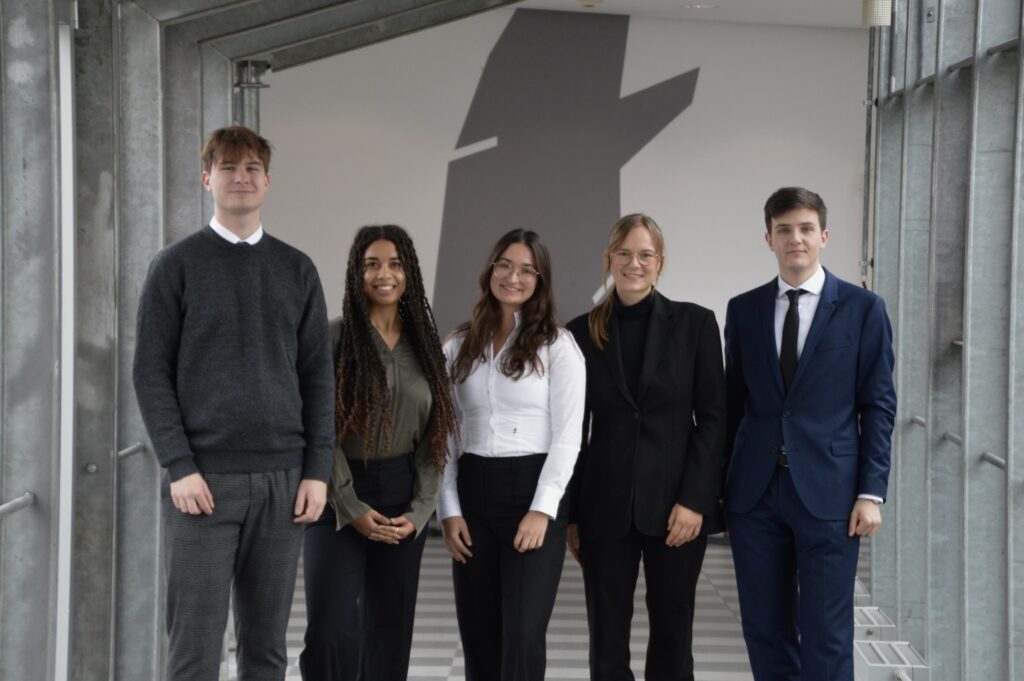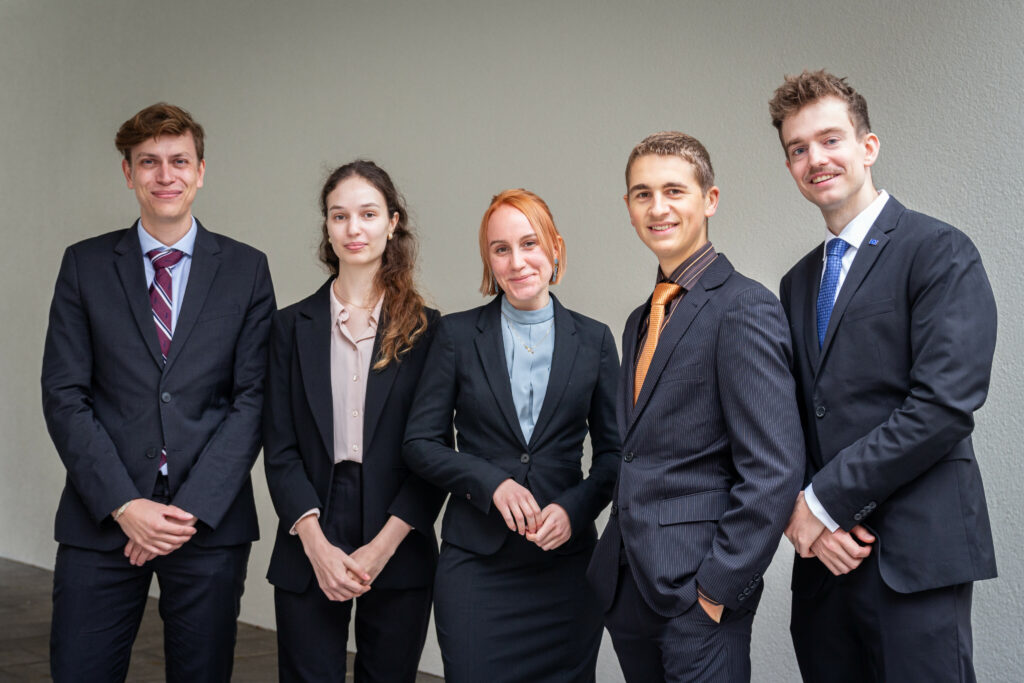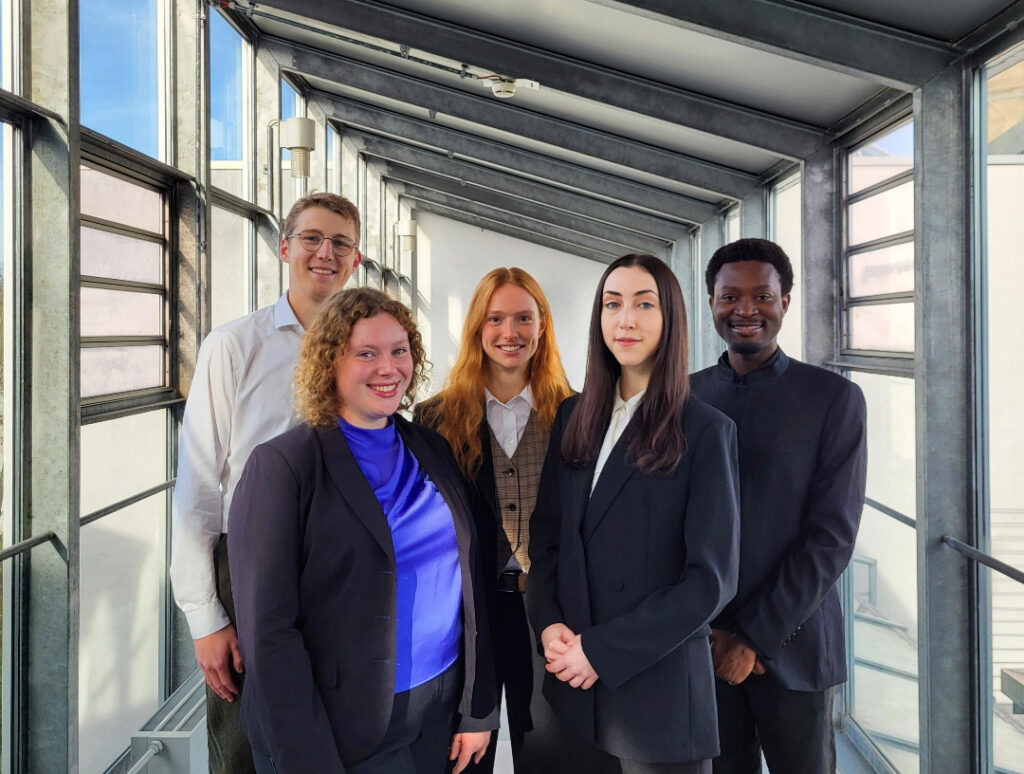„When the facts are on your side, pound the facts. When the law is on your side, pound the law. If you’re weak on both, pound the table.“
About
Der Philip C. Jessup International Moot Court Wettbewerb ist der größte und älteste internationale Wettbewerb auf dem Gebiet des Völkerrechts. Bei dem Wettbewerb geht es um eine simulierte Gerichtsverhandlung in englischer Sprache vor dem Internationalen Gerichtshof (IGH) in Den Haag. Die Teams repräsentieren die streitenden Staaten sowohl auf Kläger- als auch auf Beklagtenseite. Bei der nationalen Vorausscheidung trifft das Team auf die anderen TeilnehmerInnen aus ganz Deutschland und hat die Chance, sich für die internationale Runde in Washington D.C. zu qualifizieren. Gegründet wurde er 1959 von Studenten der Harvard und der Columbia University sowie der University of Virginia. Seither wird er jährlich von der International Law Students Association (ILSA) organisiert. Zurzeit nehmen etwa 2.500 Studentinnen und Studenten von über 680 Universitäten aus 100 Ländern teil.
Jede Universität darf ein Team, bestehend aus 2-5 Studierenden und Coaches ins Rennen schicken. Die Teams bearbeiten während des Wettbewerbs einen fiktiven Fall, der von ILSA gestellt wird und sowohl aktuelle, als auch klassische Probleme des Völkerrechts enthält. Die Studierenden vertreten die streitenden Staaten in einem Verfahren vor dem IGH. Die Teams repräsentieren die Staaten sowohl auf Kläger- als auch auf Beklagtenseite. Es sind zunächst Schriftsätze (“Memorials”) einzureichen, um dann in einer mündlichen Verhandlung (“Pleadings”) – jeweils in englischer Sprache – gegen die Teams der anderen Universitäten anzutreten.
Topics of the past years
- 2025: The rights and obligations of other members of the international community when two persons claim to be the legitimate president of a state; invocation of immunity for government officials accused of grave violations of human rights; the legal consequences of receding coastlines for the maritime zones of coastal states; and the interpretation of the compromissory clause in a treaty creating a regional organization.
- 2024: Traitors and crooks, issues related to the right to political expression, statelessness, the right to a nationality, and the scope of the United Nations Security Council’s authority in the pacific settlement of disputes.
- 2023: The interpretation of a peace treaty, deadly attacks in allegedly occupied territory, unilateral economic sanctions, and the legal consequences of failing to dispose of hazardous waste properly.
- 2022: The admissibility of illegally-obtained evidence, foreign election interference, state-sanctioned suspension of social media accounts and the legality of extraterritorial cyber enforcement operations.
- 2021: Global pandemic and the obligations and responses of States with response to the outbreak, Jurisdiction of the Court, a claim for political asylum, and State responsibility for shooting down a civilian aircraft.
- 2020: The legal issues surrounding treaty succession, fully autonomous weapons systems, government ministers accused of war crimes, and the potentially conflicting jurisdiction of the ICJ and the WTO.
- 2019: The appropriation of traditional knowledge for commercial purposes, state responsibility for corporate environmental degradation and human rights violations, and majestic herds of migratory yaks.
- 2018: The validity of interstate arbitral awards, the capture of an underwater vessel, the potential violation of nuclear disarmament obligations, and the conduct of states involved in naval warfare.
- 2017: Transboundary aquifers, obligations to world heritage sites in danger, repatriation of cultural property, and cost of refugee crises.
- 2016: Mass Surveillance, Diplomatic Immunity, Preventive Detention, Cyber-Attacks.
Be part of the FAU Jessup Family!



Weiterführende Infos
ILSA: International Law Students Organisation – The home of the Jessup
Ansprechpartner: Katja Neousypin und Prof. Dr. Markus Krajewski
Katja Neousypin
Institut für Deutsches, Europäisches und Internationales Öffentliches Recht
Lehrstuhl für Öffentliches Recht und Völkerrecht
- Telefon: +49 9131 85-26403
- E-Mail: katja.neousypin@fau.de
